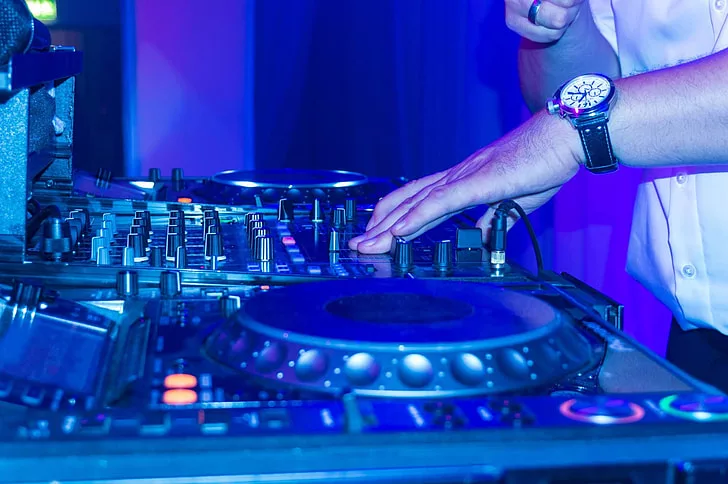Why are so many people becoming DJs? This recent obsession has taken the world – and now Oxford – by storm. Love it or hate it, everyone is doing it (or knows someone who is) which begs the question, why?
The term DJ, meaning ‘Disk Jockey’, originates from vinyl mixing on turntables, however with the digitisation of music, DJing now emblematises the act of innovating music in a live setting, connecting tracks and audiences in real time. Technological development means that brand new decks can be bought for as little as £100. Although these are smaller and simpler, as their price would suggest, they still provide decent reward and are vastly more accessible for aspiring DJs.
Technology has also changed the way we listen to music. MTV and YouTube have become relics, replaced by the growth of streaming services such as Spotify and Soundcloud, alongside social media platforms like TikTok combining music and content. This shift away from visual medium has helped broaden the genres we listen to, as the pop music of A-List performers with the highest video production budgets no longer dominate the charts. Eclectic playlists shifting from the giant music studios to more niche scenes have become commonplace and trendy. Independent artists are in the best age to be noticed. People who start off making music from their bedrooms – think PinkPantheress who uses GarageBand – are now selling out venues across the globe. Stories like these become inspirations for a new generation of aspiring musicians, but with this influx to an already oversaturated market, it is easy to fade into a blur of newcomers.
But what if you are in your twenties, passionate about music and keen to get your own content out there, but you lack traditional musical talent? You never learnt to play an instrument and you can’t sing to save your life. Whilst this used to be a huge barrier, you can master Rekordbox and a Pioneer mixer in a fraction of the time and price of an instrument, and work with pre existing tracks to connect your taste to your audience.
In the past, DJs’ collaborations with pop artists were generally the most significant way of propelling them into the mainstream. Thinking back to the 2010s, DJs like Marshmello and DJ Khaled were collaborating with the most famous names – Selena Gomez, Justin Bieber. Let’s not forget Faded by Alan Walker which was heard on every high street on the planet, featuring the Norwegian singer Iselin Solheim, who is of course a lot more obscure than the previous mentioned – yet the song skyrocketed. This suggests that it was less about the status of who they were collaborating with, and more about the familiarity and trendy structure that a pop singer could provide, pushing a song onto the mainstream radar.
Nowadays, we are seeing more and more DJs reaching fame for their solo projects. DJs are no longer a hoard of middle aged scruffy men, broken up by faceless enigmas like Marshmello, or awkward nerds like Skrillex. TikTok has propelled a less conventional wave of DJs to fame. Peggy Gou, for example, shot to fame with (It Goes Like) Nanana which essentially became the song of summer 2023, and her immersion into the sphere of fashion has also made her a distinguishable and chic personality. Now sporting almost twelve million monthly listeners on Spotify, she is one of the most highly regarded DJs of this year, paving the way for female DJs in this grossly male-dominated sphere. In particular, the jungle-esque soundscapes of Nia Archives revitalised the genre, earning her multiple awards, and Jayda G’s gorgeous house track Both of Us was nominated for a Grammy.
For those interested in music, DJing has become a viable hobby to impress your friends with at house parties or for taking some ostentatious Instagram photos behind the decks (guilty!). As always, with every trend venturing into the mainstream, its popularity is accompanied by its fair share of hate. I am sure we have all joked that ‘men used to go to war, now they DJ’, or vowed to never fall victim to this epidemic, but like it or not – its rise is inescapable, and I don’t think it is close to dying down soon. In fact, I think it is only growing, but rather than being cynical, I am excited for what new music is to come.


